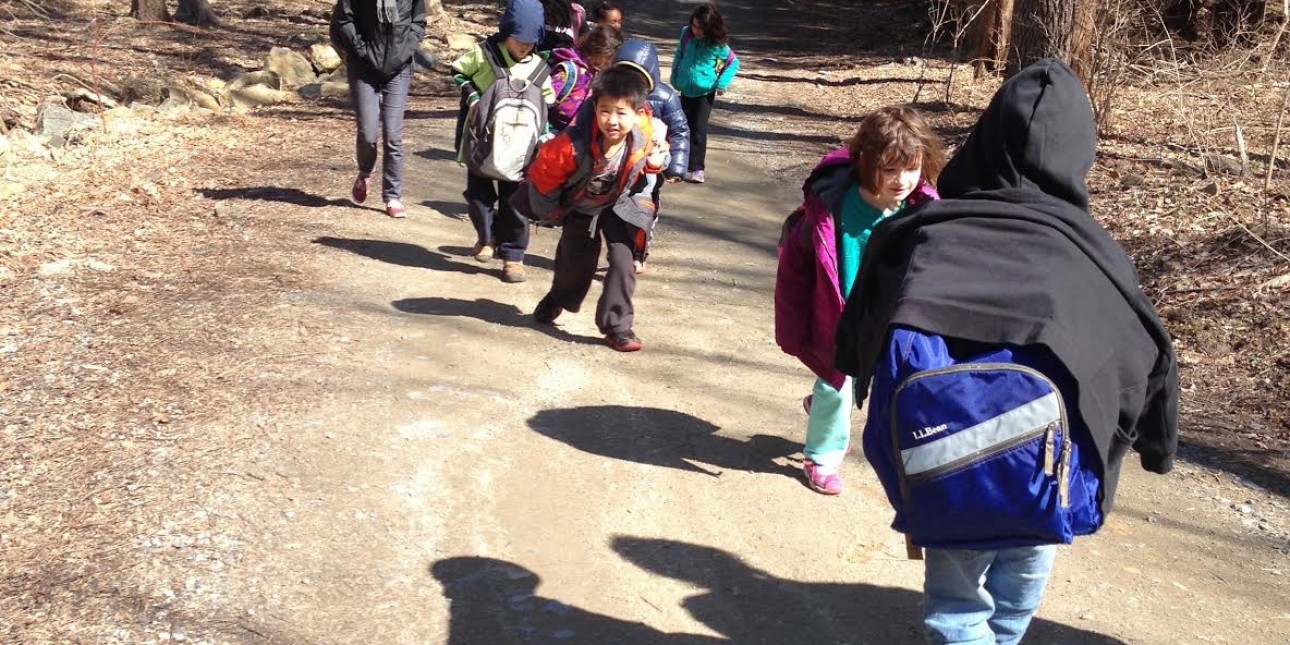Message from the Director of the After School Program

Quality Out-of-School-Time for ALL
On a lovely sunny day early this month, I was fortunate to accompany the after school children on a day trip to Wissahickon Park’s nature center, near Chestnut Hill College. We enjoyed hands-on educational programming in the woods: one program was geared to the understanding of 5-6 year olds, and another for the older children. On that early spring day, as crocuses and snowdrops started peeping through the tired, dried leaves of winter, we traveled by van, SEPTA regional rail, and bus, and finally, hiked up the hill to the center. Getting to the northern reaches of the park was as much as adventure as exploring the park itself. PIC’s children are very fortunate to be able to enjoy such opportunities for enrichment and learning.
Few people question that good quality out-of-school-time programs inspire children to learn, support their emotional and social growth and have a positive economic impact by allowing working parents to remain in the workforce. Nevertheless, in Pennsylvania alone, well over half a million (26%) of the state’s school children are alone and unsupervised when school is not in session. Over 600,000 children in Pennsylvania would participate in an afterschool program if one were available to them. Just under 200,000, or 9% of school-age children, do have access to and participate in afterschool programs in PA.
While federal grants are provided to state governments for education and in turn to school districts, the issue for many afterschool providers is that not enough of the funds filter through the administrative layers to reach the classroom, let alone to improve the quality offerings when school is out. In fact, it often seems that out-of-school-time initiatives are in direct competition with early-learning and preschool initiatives, particularly in urban communities.
For the families and children who attend PIC, these concerns may seem rather remote. PIC’s status as a high-quality, board-supervised, private, tuition-based afterschool program is naturally attractive to families from all economic backgrounds. Because of its tuition base, it is unlikely that money will run out to feed the children or equip them with enough Legos. PIC’s budget is carefully planned and PIC’s families are able to support quality programming for all the children who attend PIC.
Still, the fact that there are many, many children in West Philadelphia less fortunate in their access to quality afterschool is one that should concern us at PIC. I am currently serving as an Ambassador for Afterschool for Pennsylvania, and one of my tasks is to reach out to legislators to let them know that PIC represents a voting block that is concerned about quality afterschool for all children. In March, on a day much colder than the one I enjoyed at the Wissahickon Park, I traveled to Washington, DC to talk to our national and state senators about appropriation bills that could strengthen much of the good-sounding rhetoric they already espouse. Through letters, forums and in-person visits, I’ll continue advocacy efforts for the next several months: the state fiscal year begins in July and the federal fiscal year begins in October. I hope that I’ll soon be able to report that our PA senators signed on and helped push through funding for more neighborhood children may enjoy quality afterschool programming.